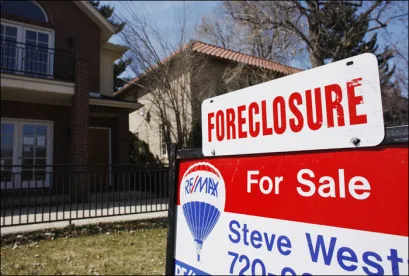On April 29, New Jersey formalized a bipartisan package of nine bills aimed at reforming the Garden State’s mortgage foreclosure laws. The primary goals of the legislation are to reduce the number of foreclosures in New Jersey – the state currently has the nation’s highest foreclosure rate – and to speed up the foreclosure process. The package contains a number of changes to existing law and new requirements of which lenders and servicers should be aware.
A-664
Assembly Bill 664, the “New Jersey Foreclosure Mediation Act,” codifies the state’s Foreclosure Mediation Program, established in 2009. The act’s goals are to increase the number of debtors who enter mediation and to provide more homeowners with housing counseling. Lenders must provide homeowners with written notice of the option to participate in mediation along with notices of intention to foreclose; they must provide this notice again upon filing a mortgage foreclosure action. Courts may order mediation when a homeowner files an answer to a foreclosure complaint, or the homeowner may request mediation. When mediation is ordered by the court or requested by the mortgagor, all parties must participate in mediation in good faith: the lender or servicer must attend a mediation session, with authority to consider alternatives to foreclosure so that the parties may reach a mutually agreeable resolution, such as a loan modification or refinancing agreement. Sanctions for failing to attend mediation or participate in good faith include a civil penalty up to $1,000, attorneys’ fees and litigation expenses, or both. In addition, when filing a foreclosure action, the filing party or parties must pay an additional $50 with their filing fees. This additional fee, along with civil penalties under the act, go into the Foreclosure Mediation Fund, created by the act to fund the mediation program.
A-4997
Assembly Bill 4997, the “Mortgage Servicers Licensing Act,” provides that any person acting as a mortgage server in New Jersey will be required to obtain a license from the Commissioner of Banking and Insurance for the servicer’s main office and for each branch office where business is conducted in the state. Licensing qualifications include the servicer’s identifying “qualified individuals” to manage its main and branch offices. These individuals will have supervisory authority over the servicing activities of their respective main or branch offices, and qualifications include at least three years’ experience in the mortgage servicing business over the five years preceding license application. Applicants for a servicing license must also demonstrate financial responsibility through a submission of their most recent audited financial statements, and other information required by the commissioner. A mortgage servicer license cannot be transferred or assigned, and must be renewed after the first year of its term and, subsequently, every three years.
Any change in the licensed servicer’s name or the address of any of its offices requires 30 days’ written notice to the commissioner. The commissioner may request further information or reject the change within that 30-day period; otherwise, the change will take effect at the close of the 30 days. The act exempts certain servicers from the licensing requirement, including federally insured banks and credit unions, their wholly owned subsidiaries, and residential mortgage lenders licensed under the New Jersey Residential Mortgage Lending Act – provided these entities meet surety bond, fidelity bond, and insurance coverage requirements.
A-5001
Assembly Bill 5001 revises the statute of limitations for residential mortgage foreclosure actions. This bill reduces the statute of limitations from 20 years after the date of debtor default to six years, in cases where the date of default is used to calculate the statute of limitations. Therefore, under this act, the statute of limitations for commencing a foreclosure action on a residential mortgage will have run at the earliest of (a) six years from the date set for making the last payment under the mortgage, or the maturity date; (b) 36 years from the date the mortgage was recorded; or (c) six years from the date on which the debtor defaulted.
S-3411
Senate Bill 3411 revises New Jersey’s “Fair Foreclosure Act,” which requires lenders to send borrowers a notice of intention to foreclose at least 30 days prior to commencement of a foreclosure proceeding or other legal action to take possession of the property. This notice must inform the borrower of its right to cure the default. Now, the notice of intention must be sent at least 30 days prior but not more than 180 days prior to commencement of a foreclosure action. If more than 180 days elapse after issuance of notice with no subsequent action taken by the lender, a new 30-day notice must be issued before the lender can commence a foreclosure action. In addition, the 30-day notice of intention to foreclose must now include notification that the debtor is entitled to receive housing counseling through the Foreclosure Mediation Program, at no cost. The debtor must also be given information on how to contact the program.
Another change under this act concerns pending foreclosure actions. Under Rule 4:64-8 of the Rules Governing the Courts of the State of New Jersey, when a foreclosure matter has been pending without action for 12 months, the Superior Court will dismiss the action without prejudice upon a 30-day written notice to the parties. Reinstatement of the action by the creditor may only be permitted on a motion demonstrating good cause. Rule 4:64-8 is amended such that reinstatement after dismissal may only occur twice before the plaintiff must file a new complaint in order to proceed with the foreclosure action, and the application to reinstate the matter includes a fee of $100 within 30 days of dismissal without prejudice, or $300 if the application is made more than 30 days after dismissal. The lender must bear this fee itself; it cannot charge or otherwise pass a reinstatement fee on to the debtor or any other person.
These are the most significant changes of which mortgagors and servicers operating in New Jersey should be aware under the new package of laws. Certain changes, including the change in statute of limitations under A-5001, are effective immediately. Others, including codification of the Foreclosure Mediation Program under A-664, will become effective over the rest of 2019. Entities subject to these nine bills should thoroughly review the new requirements to ensure that they remain in compliance.




 />i
/>i

